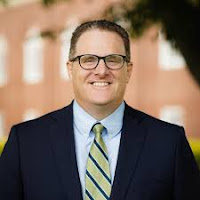Theological Triage: A Proposal
[The above paragraph was adapted from the author's bio in He Is Not Silent: Preaching in A Postmodern World and from https://albertmohler.com/about/.]
One unique contribution that Dr. Mohler has made to theological discourse is coining the term "theological triage". Over the years, Dr. Mohler has explained this term in several places. For example in his 2008 book He Is Not Silent: Preaching in A Postmodern World, Dr. Mohler wrote:
As anyone who visits a hospital emergency room is aware, a triage nurse is customarily in place to make a first-stage evaluation of which patients are most in need of care. A patient with a gunshot wound is cared for ahead of a sprained ankle. This makes perfect sense, and indeed to ignore this sense of priority would amount to medical malpractice! In a similar manner, the pastor [/theologian] must learn to discern different levels of theological importance. I identify three distinct orders of doctrine in terms of importance.
Summary
Dr. Mohler writes that first-order doctrines are those "essential to the Christian faith"–denial of these doctrines will place a person outside of Christianity. Second-order doctrines are those "necessary for the ordering of the local church"–disagreement on these doctrines will make it "impossible to function together in a single local congregation". Third-order doctrines are "those that may be the ground for fruitful theological discussion or debate, but that do not threaten the fellowship of a local congregation or denomination."
More recently, Gavin Ortlund of Truth Unites has written Finding the Right Hills to Die On: The Case for Theological Triage (2020). Ortlund is explicitly indebted to Dr. Mohler's triage metaphor and categories, but he lists them a bit differently. He writes:
First-rank doctrines are essential to the gospel itself.
Second-rank doctrines are urgent for the health and practice of the church, such that they frequently cause Christians to separate at the level of local church, denomination, and/or ministry.
Third-rank doctrines are important to Christian theology, but not enough to justify separation or division among Christians.
Fourth-rank doctrines are unimportant to our gospel witness and ministry collaboration.
Ortlund's explanation of first-rank and second-rank doctrines tracks exactly with Dr. Mohler's first-order and second-order doctrines. Ortlund divides Dr. Mohler's third-order doctrines into two 'ranks'. Ortlund's motivation in this division seems to be ministry-driven; as a public theologian, Ortlund regularly engages in theological discussions and debates, so by categorizing some doctrines as "fourth-rank," he is able to better focus on first through third rank doctrines, while avoiding distractions by (at least relatively) unimportant doctrines.
Proposal
It may be the case that an additional "order" or "rank" is needed in this rubric of theological triage. In both Dr. Mohler's and Gavin Ortlund's explanations of second-order or second-rank doctrines, there seems to be the assumption that differences among these doctrines will cause Christians to separate into both different congregations and different denominations. However, it may be the case that some doctrines would cause Christians to separate into different congregations, while still allowing for denominational cooperation.
For example, 9Marks has published several articles and podcast episodes arguing against multi-site churches, or even against churches holding multiple parallel services on a weekend for congregants to choose from. (They argue that churches planting churches is the ecclesiologically healthier model.) There are many churches in the SBC that are influenced by 9Marks and that agree with the critique of the multi-site church model; however, there are other churches in the SBC which utilize the multi-site model or which have multiple parallel services on the weekend. Whereas a person with a conviction against multi-site churches could not become a member of a site in such a network, it seems that the SBC has been able to promote friendly cooperation between multi-site churches and those who object to the multi-site model. Therefore, it may be the case that among second-rank doctrines, there are some that are so serious as to distinguish different denominations and some that would distinguish different congregations within the denomination.IF this division of second-rank doctrines is NOT valid (if every doctrinal distinction that would distinguish one congregation from another should also distinguish one denomination from another, and vice-versa), then there are several doctrines (like multi-site churches and the ordination of female deacons, to give another example) that the SBC needs to address at the denominational level.
Labels: apologetics


















